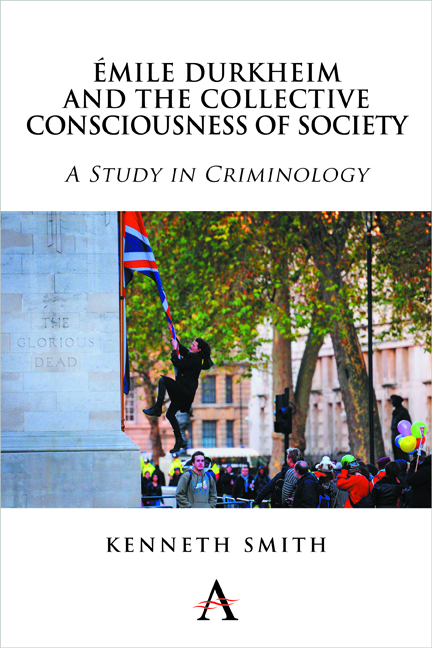Book contents
- Frontmatter
- Dedication
- Contents
- Epigraph
- Preface
- Introduction
- Part I The Concept of the Collective Consciousness of Society
- Part II The Form of the Collective Consciousness
- Part III Durkheim on Crime and Punishment
- Part IV Social Fact or Social Phenomenon? Durkheim's Concept of the Collective Consciousness as a ‘Social Fact’
- Part V Some Problems with Durkheim's Concept of the Common and Collective Consciousness
- Conclusion
- Appendix: On Paying a Debt to Society
- Notes
- References
- Index
Part II - The Form of the Collective Consciousness
Published online by Cambridge University Press: 05 October 2014
- Frontmatter
- Dedication
- Contents
- Epigraph
- Preface
- Introduction
- Part I The Concept of the Collective Consciousness of Society
- Part II The Form of the Collective Consciousness
- Part III Durkheim on Crime and Punishment
- Part IV Social Fact or Social Phenomenon? Durkheim's Concept of the Collective Consciousness as a ‘Social Fact’
- Part V Some Problems with Durkheim's Concept of the Common and Collective Consciousness
- Conclusion
- Appendix: On Paying a Debt to Society
- Notes
- References
- Index
Summary
The twentieth century is the first century in which religion was not a dominant force in shaping the law, social attitudes and behaviour. The collapse of religion was not just a collapse of belief, but the collapse of identities shaped by religion. The weakening of hierarchy and deference, the search for new forms of authority, the commercialisation of culture, and the increasingly contractual view of rights and obligations are part of the vast social transformation of Britain in the twentieth century. What has survived is a particularly British vein of moralism, yet one which has been detached from its previously institutional expressions in family duties, sexual and moral codes, good behaviour, politeness and self-restraint.
(Skidelsky 2010, 572)- Type
- Chapter
- Information
- Publisher: Anthem PressPrint publication year: 2014

